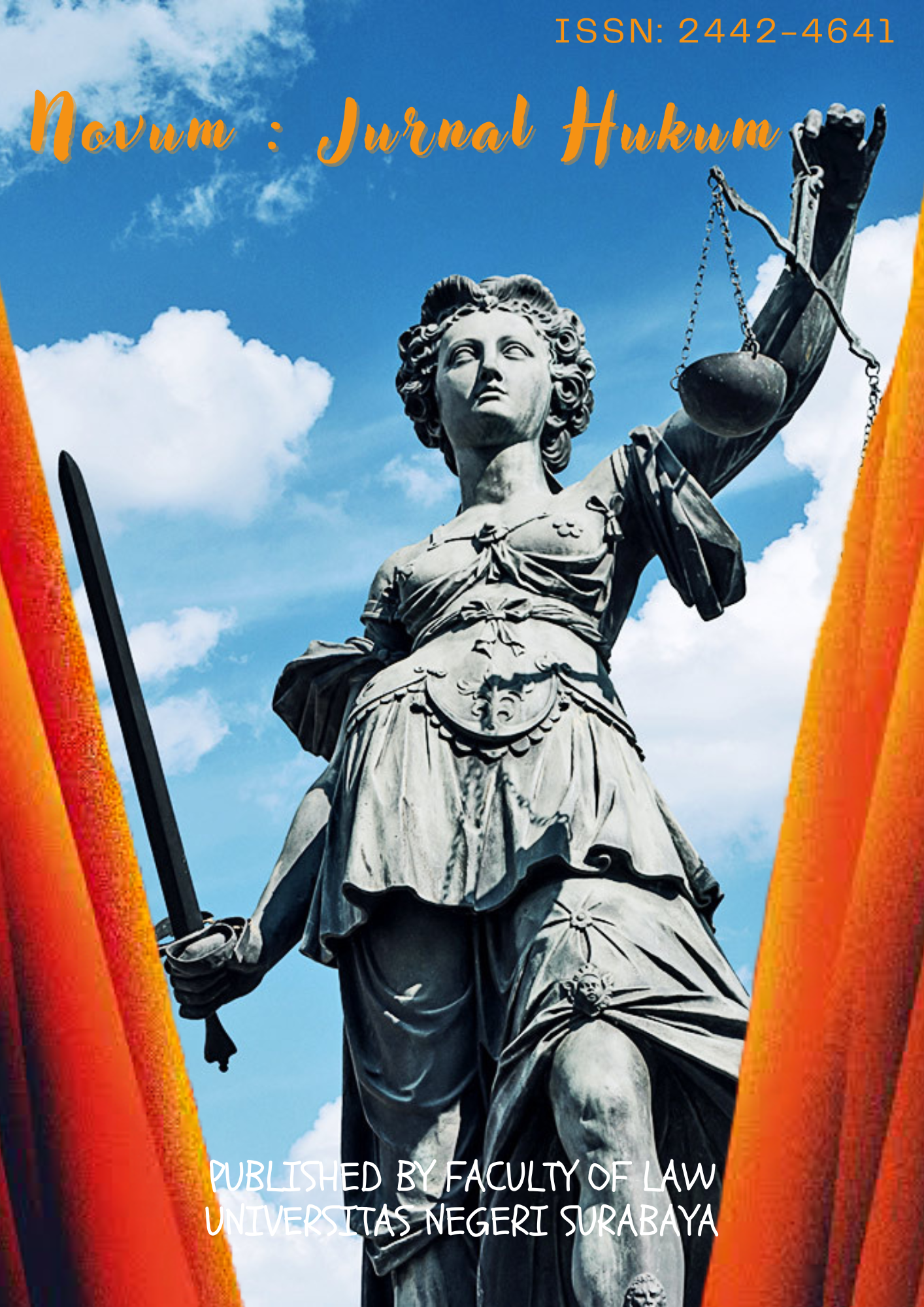Legal Protection for Employment BPJS Participants Who Experience Accidents Outside Routine Routes
DOI:
https://doi.org/10.2674/novum.v2i2.48532Abstract
Work Accident Insurance (WAI) arises because of concerns over work accidents experienced by workers and possibilty violations commited by the company on safety and health, causing workers not to get claims on Work Accident Insurance (WAI). Work accidents are work accidents that occur in employment relationships, including accidents that occur on the way from home to work or the other way, and diseases caused by the work environment. On this research will discuss the legal protection provided to workers who experience accidents the usual or reasonable routine routes. This study aims to know and describe the legal protection provided if JKK cannot be given to BPJS Employment participants who experience accients outside the routine route and factors that influence the determination for BPJS Employment participants to get benefit to JKK. This research is a normative research with a statutory and conceptual approach and analyzed with descriptive, evaluative, and argumentative techniques. The resukt of research and discussion that if workers experience accidents outside the routine route, there is preventuve legal protection by diagnosing the accident case, represive means protection by means of complaints if workers have mde claims but are not disbursed. And JKK has several criteria regarding work accidents when workers at the time of a work accident based on Ministerial Regulation No. 5/2021.
Downloads
Downloads
Published
Issue
Section
License
Copyright (c) 2024 Fransiska Yuardini Yuardini, Emmilia Rusdiana

This work is licensed under a Creative Commons Attribution-NonCommercial-ShareAlike 4.0 International License.
 Abstract views: 146
,
Abstract views: 146
, PDF Downloads: 14
PDF Downloads: 14



